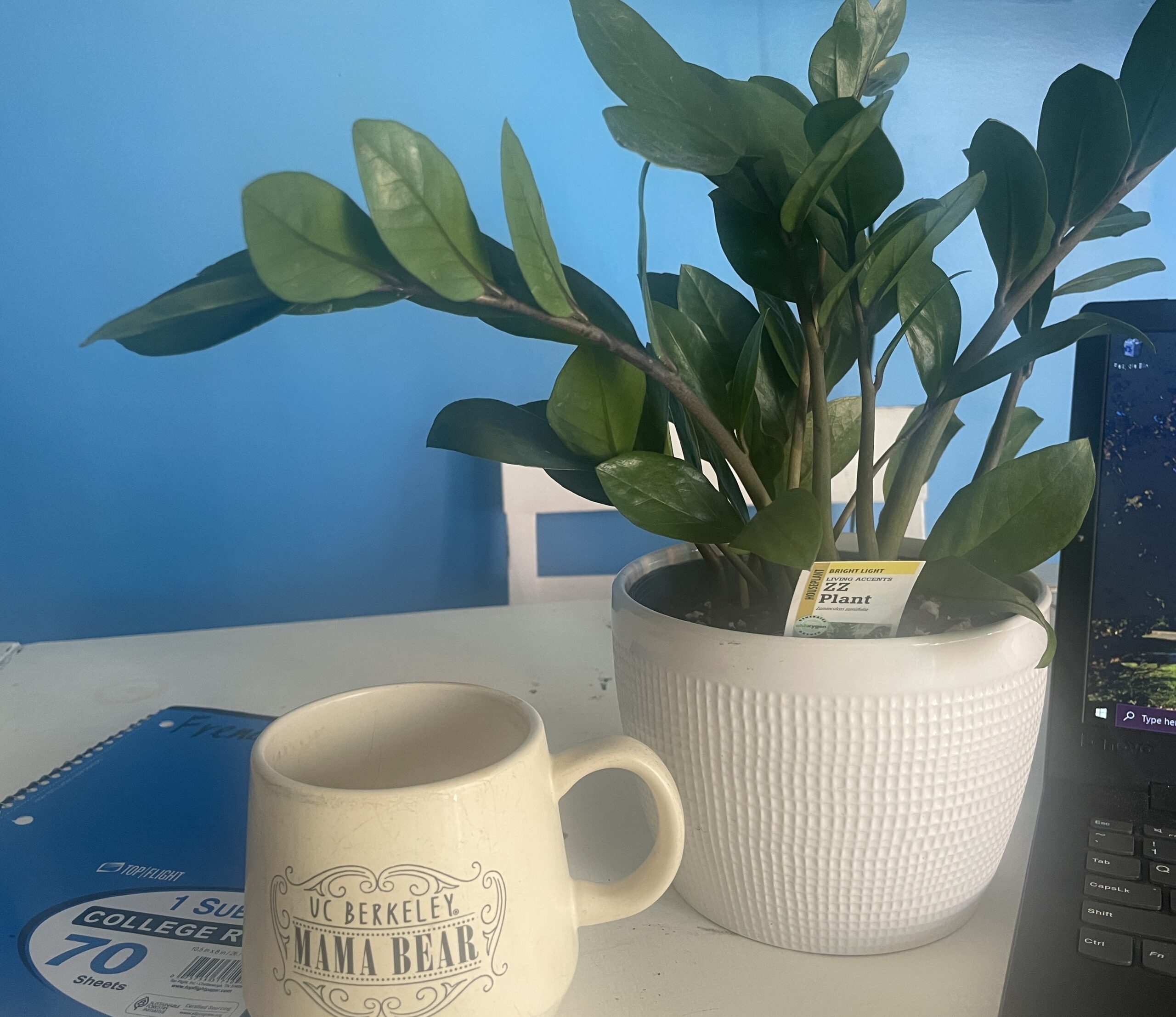This article discusses ways to avoid gaslighting wounded children when they are ready to discuss their experiences while growing up under your care. While gaslighting can happen to children of any age, I am referring to adult children who may still be struggling with painful childhood memories. First, this is not about parent-bashing, which means I would also be bashing myself. And I am not about that life, trust me.
However, I intend to bring awareness to a common thing that can run rampant in parent-child relations if parents remain ignorant of its consequences.
You know, sometimes our memory fails us. At other times, we fail to honor our memory. You might wonder what I mean by saying we can fail to honor our memory. I mean, we can become so wrapped up in shielding ourselves from emotional pain that we refuse to hear uncomfortable truths, especially when they come from our children.
Our Adult Child’s Memory Is Important
I know how easy it is to dismiss our adult children when they recount certain things because we don’t want their memories to contradict ours. However, it is not up to us to sway our children’s memories to fit into the narratives we have created to protect our feelings. Yes, I said it. Some of us empty nesters are so fragile.
The Good Parent Syndrome is Irrelevant
Additionally, there comes a time when every empty nester or estranged parent must let go of the idea of being “good parents” to our children because it is irrelevant to my points here.
And guys, please know that I had this conversation with myself before deciding to have it here with you. As an empty nester, I am where you are – trying to navigate this new space and figure out what I am supposed to do with the rest of my life. And sometimes, cringe-worthy memories come with that.
Intentional or Not: Gaslighting Invalidates
Lately, I have been introspecting on this very subject. I have rewound the mental movies of my experience as a parent and wondered about the times I may have gaslighted my children during their upbringing. And it causes me to shudder with anxiety.
The fact that I would never have gaslighted my children intentionally does not matter if they are still nursing pain associated with my past actions. I don’t know if that ever happened in my family (it probably did), but the faintest possibility of it is a scary and humbling thought.

Consider this scenario: A parent gets a phone call or text from an adult child saying they want to discuss some things. Then, the mind starts racing to believe all sorts of negativity since they’ve been estranged from their child, and automatically begin rehearsing a strategy to defend themselves. The same applies to empty nesters who are not estranged.
Some Things That Can Help
-
Be Still and Quiet The Mind
-
Check all defenses at the door
-
Listen Actively
-
Things To Help With Active Listening
-
Be Open to Correction
-
Validate, Validate, Validate!
1. Be Still and Quiet the Mind
Maybe our child has been away at college or living and working in another state. Perhaps they have been estranged for reasons you are unwilling to accept as valid. Many adult children are busy figuring out their lives without us, which is healthy and important. And I should add that a time of separation is best served by parents’ commitment to not interfere with their adult children’s lives.
Whatever the reason, I always encourage parents to be still and quiet in their minds when their child opens the door to one-on-one adult conversations.
Calm Your Nerves
It is not a time to panic. Understandably, we each have different things that calm us, and I encourage parents to use whatever works. Some of us read, take long walks, run, get a smoke or drink, or even meditate. Do whatever you need to quiet your mind so the conversation can be productive for everyone.
I realize I have simplified things here, and I plan to speak more about ways to provide self-care in future articles. In the meantime, I encourage empty nesters to focus more on their healing and well-being rather than on missing their adult children by taking advantage of this time of separation.
2. Check All Defenses at the Door
We can lose sleep anticipating what our adult children might share about their upbringing. Still, we must check our defenses at the door before conversing with them.
As I said before, as parents, we can lean too heavily on the fact that we believe we were “‘good parents,” especially if our adult children told us as much. That certainly has its merits, but that is beside the point. We should and can drop our guard to foster transparency and trust for true healing and reconnection.
When I Gaslighted My Son
Several months ago, my son was recounting one of his childhood experiences with me as he remembered it. But I immediately discounted his version of the story to protect my feelings.
Now, remembering that conversation months later, I realize I had gaslighted him. It wasn’t about anything horrible, yet I quickly defended myself and told my son that the situation had not gone down how he remembered it. But what if it had?
Be Willing To Apologize
And at the time of this writing, I still feel horrible about gaslighting my son. And I am looking forward to apologizing to him in person. It is something that I cannot sweep under the rug because gaslighting belittles and invalidates. And the last thing I want to do is invalidate any of my children.
So, fellow empty-nesters, to strengthen relationships with grown children, we must lay down our tactical gear and drop our guard. In doing so, everyone will benefit.

3. Listen Actively
How well do you listen? These last few years of introspection have revealed that I was not a good listener for many years. It’s like a fluorescent lightbulb illuminated inside my head recently. Parents are in survival mode with everyday challenges simultaneously with raising children, so it is easy to become emotionally unavailable to children. I am not saying it is okay. I am saying that I understand how it can happen.
Parents Should Seize The Moment
A good conversation can allow parents to redeem themselves if they respectfully handle the situation. But let’s not assume that being quiet while someone’s speaking to us always constitutes active listening. Being quiet can often mean only not talking.
Frankly, it is possible to be silent with their mouths but have all kinds of conversations in our heads while someone is speaking to us. And I dare say sometimes they are unfair judgments. Besides, it hinders active listening.
According to www.verywellmind.com, active listening is “a communication skill that involves going beyond simply hearing another person’s words but also seeking to understand the meaning and intent behind them. It requires being an active participant in the communication process.”
Active Listening: Techniques, Benefits, Examples (verywellmind.com)
Things To Help With Active Listening
a. Create a Quiet Environment
Adult children can detect if we are attentive. So, let’s not be watching our favorite television show (even on mute) or polishing our fingernails when they are pouring out their souls to us.
Let’s turn off all distractions and pay attention to what our grown-up children are trying to communicate to us. Doing so will increase opportunities for connection and healing of the relationship.
In some cases, empty nesters or estranged parents can only speak to their adult child over the phone due to the geographic distance between them, which is okay. They can employ active listening skills in those cases, as well.
b. Look Into Your Child’s Eyes
Fair or not, I’ve always been skeptical of people who don’t look into my eyes while speaking to me. Granted, some people are deeply introverted, but still. We are talking about adults in a family situation here. Hence, it is worth pushing past our comfort zone so healing can happen for everyone.
The last thing you want is to have your children feel they cannot trust that you aren’t actively listening to them because you look everywhere but into their eyes.
I am putting the onus of healthy parent-child relations on us parents because we are the ones who set the tone of the relationship with our children. Our children have had to depend on us for so many years while raising them. So, let’s help them to rely on us for active listening.
c. Be Mindful of Body Language
Also, let’s be mindful of body language while adult children are speaking in the best way they know how. Trust me, if they come to their parents, they have been mulling over some things for a long time, so parents need to acknowledge their efforts.
Remember to sit (or stand) with body language that communicates that your adult child has 100 percent of your attention. In other words, no folding of the arms or using the hands to shut them off mid-sentence. Just listen attentively. Active listening builds (or rebuilds) trust.

5. Be Open To Correction
Being open to correction is essential when talking with adult children. Although explaining our “side of the story” is tempting, it’s crucial to establish an end goal: to strengthen the connection and trust between our adult children and us.
Consequently, we need to be humble and open to being corrected. Better yet, we should embrace it because, as parents, we do not know everything.
Our children may have a more accurate memory of certain events. Besides, we must decide if facts matter or if our adult children’s perception of their lived experiences is more important.
Adult Children May Enlightenment, Too
I am not saying that only parents should receive corrections if applicable. No. Parents may need to enlighten adult children on some things. However, unless untrue information is highly damaging, it might be best to let it go rather than try to chase every false rumor your children believe about you. Trust that life will set things upright with time. Your main goal is to establish a deeper connection with your adult child.
At the end of the day, if gaslighting has been part of your family dynamic, I encourage you to jump at the chance to put it behind you for the sake of your child’s healing.
Adult Children Have Had Time To Reflect
Adult children in their late 20s, 30s, 40s, or even 50s have had ample time to reflect on things.
Remember, certain things affect our children even into adulthood, just like some adverse things in our upbringing still affect us, so we should respect them for that. Given that, it would help not to try to defend all the “facts” but to save the relationship and repair the breach.
Gratitude Helps Every Situation
If adult children want to maintain a healthy relationship with their parents, they should be grateful. I have heard about some adult children who estrange and never return to their parents (and some for valid reasons).
On the other hand, gratitude can be an effective way to repair broken relationships with adult children. No matter how we slice it, gaslighting has no place in family relations.
When You Express Gratitude You Will Be Given Even More Reasons To Be Grateful
Gaslighting: What It Is
I’ve talked a lot about Gaslighting in hopes that you would get the main points of this article without it sounding too academic, but for those who may want a helpful literary definition from the site Medical News Today.
“Gaslighting is a form of psychological abuse where a person causes someone to question their sanity, memories, or perception of reality. People who experience gaslighting may feel confused, anxious, or unable to trust themselves.”
It Is Not About You Right Now
As an empty nester, I know how that pain feels. But our children are not trying to hurt us, trust me. If anything, they may be doing all they can do not to hurt us. Besides, they may be hurting, too.
So, there is no need to try to stab them with gaslighting. Try to relax. It may well be that adult children only want to share their perspective as part of their healing journey, not to get back at their parents or make them feel guilty about anything.
Seeking Professional Help is an Option
It could be beneficial for parents to seek the advice of a family therapist on their own and then again with their adult child. A professional mediator could provide the cushion to benefit parents and adult children.
Let’s try to remember that it is our adult child’s story. So, please consider their account without dismissing them yet again. They have carried their pain for a long time and have finally found the courage to discuss some things with their parents.
Adult children want to trust their parents and feel emotionally safe with them. And parents can play a massive role in making that happen.
Take a Stand Against Gaslighting
Whatever we do, we must refuse to gaslight our adult children because it will only result in even more pain on both sides, even if it is unintentional. And this goes back to dropping our defenses.
6. At The End of the Day: Validate!
In conclusion, I sum up all I said earlier with this three-word statement: Validate, validate, validate! Instead of competing with adult children by “dad-splaining” or “mom-splaining” the situation from a parent’s point of view, always acknowledge the validity of their feelings.
Honestly, adult children owe their parents nothing, not even a conversation. So, let’s allow grace and mercy to have their place in the scenario.
Recapping To Help Validate Adult Children
- Give them your undivided attention if they want to talk.
- Use inviting body language, such as nodding and repeating what you think they are saying. Never assume anything. Assure your child that you understand them.
- Show respect by asking your adult child for suggestions on ways you can make amends or improvements in your relationship.
- If applicable, acknowledge that we were overwhelmed with life and too emotionally disconnected from our child during their formative years. So, you probably missed some things.
- Finally, do not judge or make your adult child wrong. Please acknowledge that you understand how they feel and thank them for sharing with you and showing you grace.
Best wishes to all families dealing with empty-nesting or estrangement from adult children – or both.
Feel free to comment on this article below and subscribe to my blog, as it is FREE!
Also, if you enjoyed this article, you might enjoy this one:









